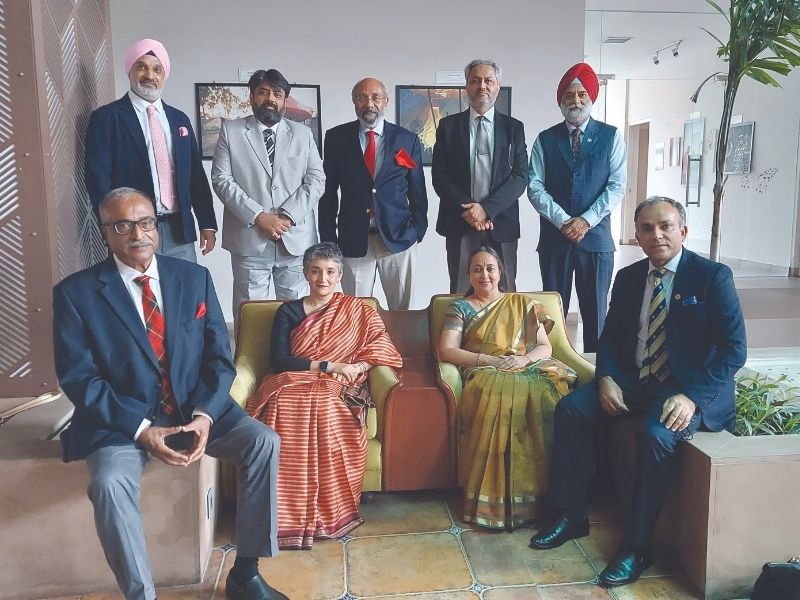In an important even if belated development, several blue-chip boarding schools — some of over 150 years vintage and respected around the world — have jointly promoted the Boarding Schools Association of India (BSAI), registered on September 29.

BSAI founding members: policy formulation goal
The prime objectives of BSAI declared in the association’s constitution are “to serve the staff and students of member boarding schools through professional training, providing a forum for all member schools to increase interaction and cooperation amongst each other along all facets of the boarding experience, leading the discussion on well-being and all-round development of boarding students, and advancing and supporting best practices in pedagogy… Furthermore to advance the interests of member schools, staff and students, and act as a liaison between different stakeholders such as member schools, the larger educational industry, teachers, students, parents and government”.
The founding members of BSAI include The Doon School, Dehradun; Mayo College, Ajmer; Scindia School, Gwalior; Welham Girls and Welham Boys, Dehradun; The Lawrence School Lovedale; The Lawrence School, Sanawar; Pinegrove School, Dharampur; The Assam Valley School and SelaQui International School, Dehradun — all ranked among the Top 10 co-ed, boys and girls boarding schools in the EducationWorld India School Rankings 2020-21. Sumer Singh, one of India’s most respected educationists and former headmaster of The Lawrence School, Sanawar and Daly College, Indore, is the founder-president of BSAI.
“Unlike boarding schools in the UK, Australia and New Zealand, in India boarding schools lack a voice when the Central and state governments formulate education policies and regulations. BSAI has been promoted to ensure that we contribute to policy formulation. For instance, during the recent Covid-19 pandemic lockdown the Central and state governments issued on and off campus lockdown directives without taking into account that boarding schools fees cover much more than tuition and students cannot be sent home or recalled at a short notice since they come from all parts of the country and often from abroad,” explains Sumer Singh.
The newly registered association intends to play a large and evolving role in K-12 policy formulation and education development in the post-pandemic era. BSAI will collaborate with similar associations in the UK, Australia and New Zealand to research and develop international standards for teacher certification in areas such as pastoral care, safety and security, and conduct audits for member schools to ensure compliance with government mandated rules and regulations and establish safe and eco-friendly campuses.
“All member schools will benefit through exchange of best practices, conferences, workshops, debates on government policies and certification of vendors of hardware, software and services. BSAI will also provide mentorship to newly-promoted greenfield schools and consultancy services especially for professional development of teachers,” adds Singh.
Although left-liberals who dominate the academy and formulate education policies tend to dismiss India’s legacy and new genre international boarding schools as relics of the British Raj and/or elitist, residential schools (and private residential universities such as Ashoka, Jindal Global) are experiencing a resurgence of popularity within postliberalisation India’s fast expanding middle class.
“Even before the Covid pandemic there was rising awareness that boarding schools with their pollution free environments offer more conducive conditions for the holistic development of children. This awareness has been heightened during the pandemic because of the controlled environments we provide. Moreover better travel and digital connectivity have diluted the monastery image of boarding schools. I expect a surge in admission applications in the post-pandemic era,” says Lt. Gen. (Retd.) Surendra Kulkarni, director of the highly-reputed Mayo College, Ajmer (estb.1875).
Quite obviously an overdue initiative.
Dilip Thakore (Bengaluru)


























